Word identification Phonics Worksheets for Ages 3-7
7 filtered results
-
From - To
Enhance early reading skills with our Word Identification Phonics Worksheets designed specifically for children ages 3-7. These engaging worksheets help young learners master letter sounds, phonemic awareness, and word recognition through fun, interactive activities. Ideal for preschoolers and early elementary students, our resources support foundational literacy development and build confidence in reading. Each worksheet promotes essential language skills, making learning both enjoyable and effective. Give your child a head start in reading with our expertly crafted phonics worksheets, available for easy download and print. Explore a world of learning at Kids Academy today!
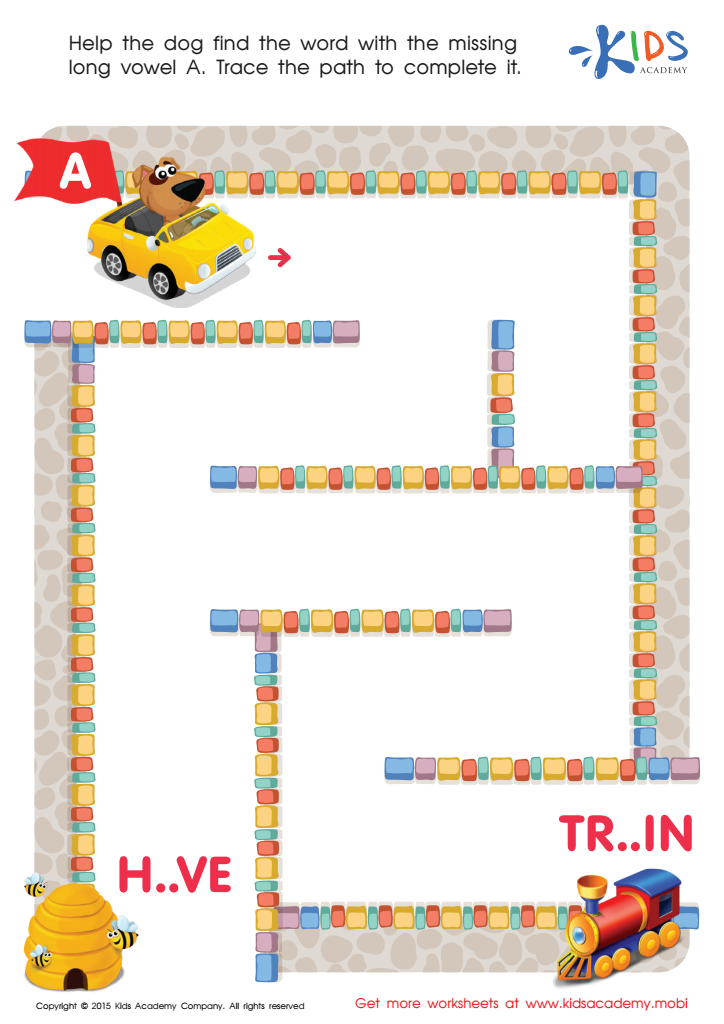

Long Vowel Sound A Worksheet
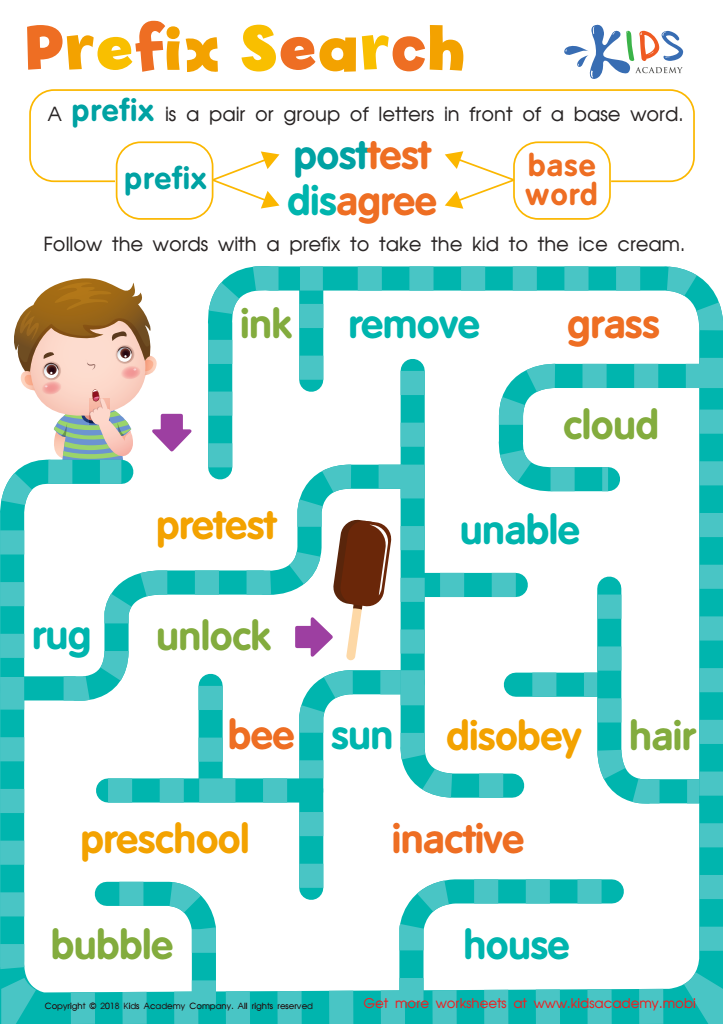

Reading: Prefix Search Worksheet
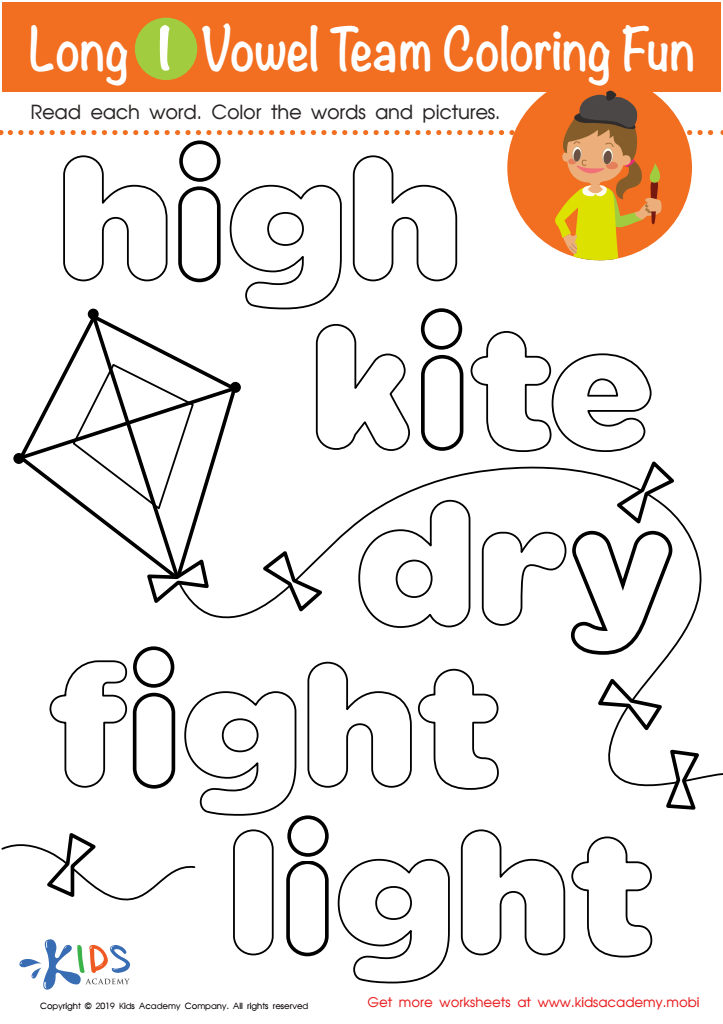

Long I Vowel Team Coloring Worksheet
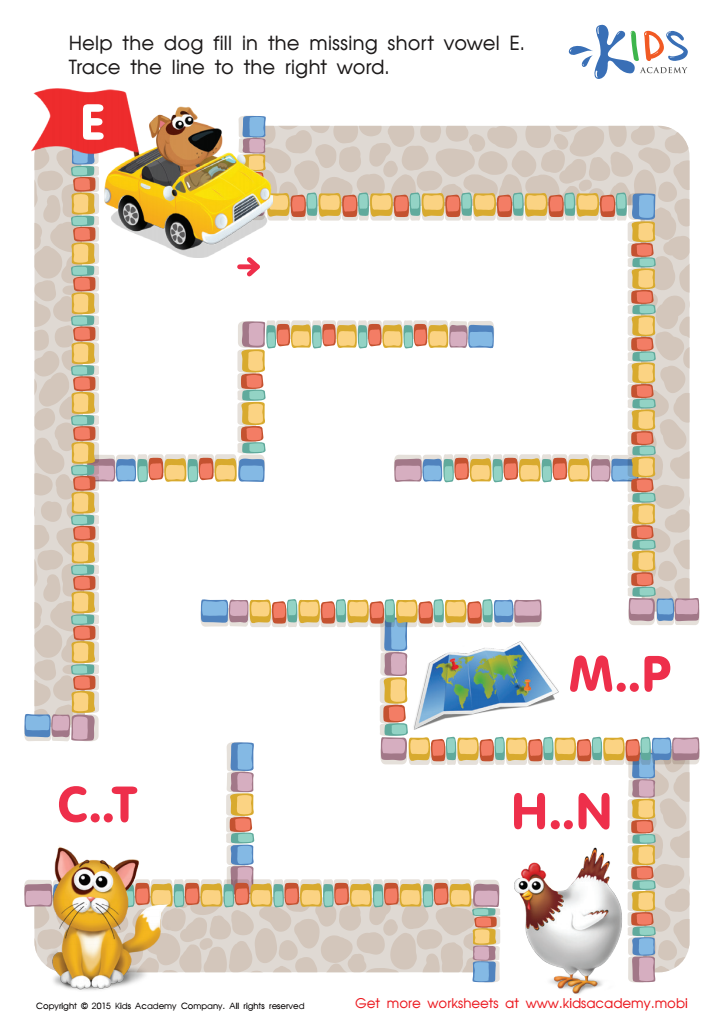

Short Vowel Sound E Worksheet


Phonics and Word Recognition: Assessment 1 Worksheet
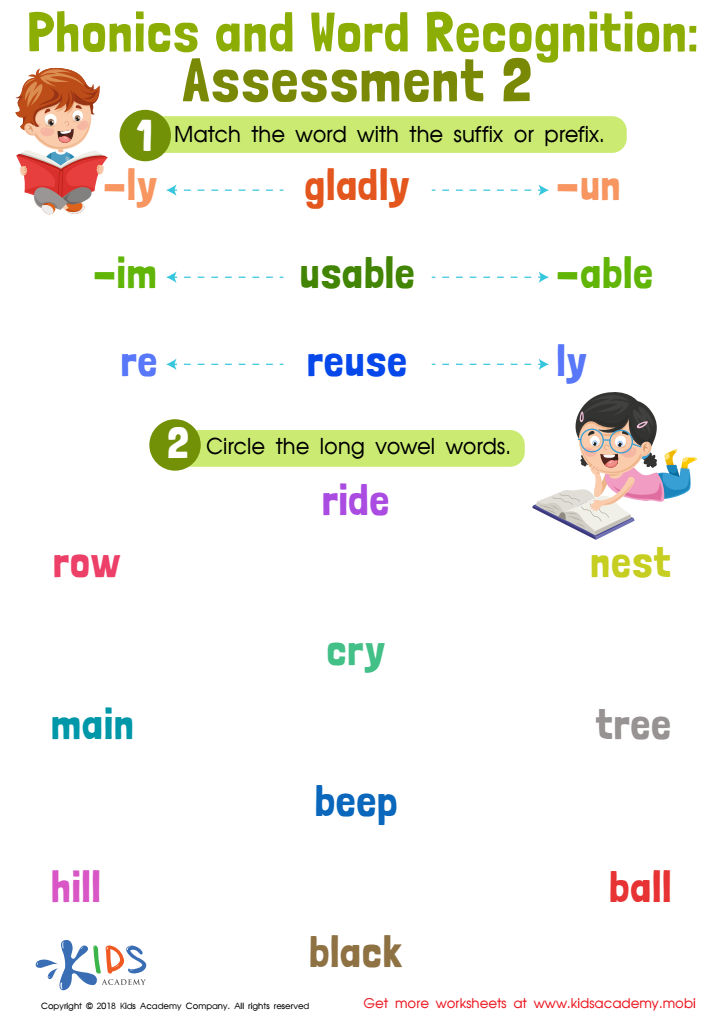

Phonics and Word Recognition: Assessment 2


Phonics and Word Recognition: Assessment 1 ELA Worksheet
Word identification and phonics form the bedrock of early literacy skills, essential for children aged 3-7. At this critical developmental stage, learning to read unlocks a world of knowledge, fuels imagination, and underpins academic success.
Firstly, word identification aids children in recognizing common high-frequency words accurately and swiftly, fostering automaticity and fluency. Fast recognition diminishes cognitive load, allowing young readers to focus on comprehending text rather than decoding each word, thus improving overall reading comprehension.
Phonics involves understanding sound-letter relationships, empowering children to decode new words methodically. This skill is crucial for independent reading and builds confidence as youngsters successfully tackle unfamiliar text. As vocabulary grows, so does a child’s ability to navigate varied and complex reading materials, laying a foundation for lifelong learning.
Additionally, a strong phonics foundation promotes spelling accuracy and writing proficiency, as children learn to see the relationship between letters and sounds in written language. This holistic approach to literacy cultivates a love for reading and learning, essential for academic achievement.
Parents and teachers have a pivotal role in nurturing these skills through engaging, age-appropriate practices. Prioritizing word identification and phonics now ensures a robust, literate future, where children are equipped to explore, understand, and articulate the world around them.
 Assign to My Students
Assign to My Students















